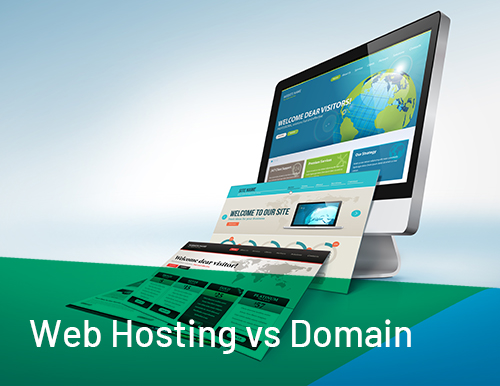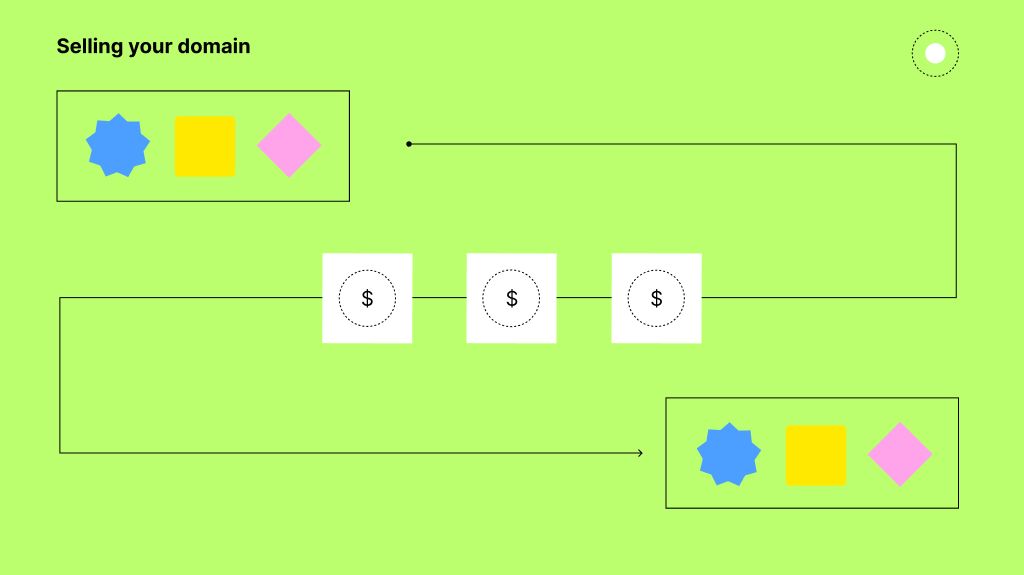When you first decide to create your online presence, you will need to start with two things: a domain name and web hosting.
Web hosting, domains and how they work
- What is a domain?
- What is domain registration?
- What is web hosting?
- What’s the difference between web hosting and domain?
Often you will purchase the two things as a complete domain and hosting package, so the difference between the two is not always clear. So let’s break it down.
What is a domain?
A domain name is the URL or address you register that people use to access your website. Australian websites tend to end in .com.au or .com, and from end of March 2022, more Australian domain names will use the short and simple .au only extension. In fact, there are many domain extensions that you can select. Learn more about the benefits of the new .au domains here.
What is domain registration?
 Once you have selected a domain name that is available, you will go through a process of domain name registration which, put simply, is a right to use that domain as your address for a period of time. After that time has elapsed, you will be required to renew that registration. Commonly registrations are sold for one or two years, but you must ensure you renew so no one else can register using your domain name. Automatic renewal is a great way to safeguard against a domain name registration lapse. Depending on where you register your domain and which extension you choose, it should cost less than $20 per year. In summary, a domain is your address online. While a necessary component, you need domain name hosting to make it active.
Once you have selected a domain name that is available, you will go through a process of domain name registration which, put simply, is a right to use that domain as your address for a period of time. After that time has elapsed, you will be required to renew that registration. Commonly registrations are sold for one or two years, but you must ensure you renew so no one else can register using your domain name. Automatic renewal is a great way to safeguard against a domain name registration lapse. Depending on where you register your domain and which extension you choose, it should cost less than $20 per year. In summary, a domain is your address online. While a necessary component, you need domain name hosting to make it active.
What is web hosting?
Website hosting is where you store the files that make up your website. So while people will visit your URL, the domain needs to locate the images, the text and the site design you’re hosting to let people see your site in all its glory. There is a wide range of website hosting plans available, dependent upon the features offered, the reliability of the service required and how many extras you want. Your needs as an online business will determine the best web hosting plan. As with domain name registration, hosting is generally renewed annually although multi-year subscriptions are widely available. Web hosting packages have a wide range of features and different pricing structures. Each hosting system offers different plans enabling a business owner to select a plan best suited to their needs:
cPanel web hosting plans: from $9.95/month
WordPress hosting plans: from $19.95/month
Virtual private server VPS hosting plans: from $239/month
If you need extra information on matching your online business needs with a web hosting plan, read this article for some useful guidelines.
What’s the difference between web hosting and domain?
 In summary, web hosting is where your website files are physically stored, while a domain name is the address of that storage location. If you’re still confused about what is hosting and domain, think of building a house. Your plot of land has an address – this is your domain – that tells the postman and your friends where to find you. However, without an actual house on the property – this is the web hosting – you have nowhere to welcome your guests or open your mail when it arrives. The two go together, and alone they’re not much use – like an address with an empty plot or a house with no address. The same goes for domains and hosting – one is a pointer for web browsers while the other stores all your important data – so to have a functioning website, you must get both organised.
In summary, web hosting is where your website files are physically stored, while a domain name is the address of that storage location. If you’re still confused about what is hosting and domain, think of building a house. Your plot of land has an address – this is your domain – that tells the postman and your friends where to find you. However, without an actual house on the property – this is the web hosting – you have nowhere to welcome your guests or open your mail when it arrives. The two go together, and alone they’re not much use – like an address with an empty plot or a house with no address. The same goes for domains and hosting – one is a pointer for web browsers while the other stores all your important data – so to have a functioning website, you must get both organised.
Webcentral can help get your business site online
With both elements required to put your site online, it makes sense to simplify the registration. Getting both parts from one provider not only makes registration easier it also speeds things up as you’ll be able to start work on your website sooner. Contact Webcentral today to learn more about Australia’s best domain and hosting packages (as well as a free hosting trial) for your business.
Types of Web Hosting
When selecting hosting, it’s essential to match your business needs to the hosting type. Here are the main options available:
-
Shared Hosting
Ideal for smaller websites or blogs, shared hosting means your website shares a server with others. This option is affordable but may lack the resources for high-traffic sites. -
VPS Hosting
Virtual Private Server (VPS) hosting offers more control by providing a virtual environment within a shared server. This choice is suitable for growing businesses needing more power than shared hosting. -
Dedicated Hosting
Dedicated hosting provides an entire server exclusively for your website, offering the highest level of performance and control. It’s best for large businesses with high traffic and complex websites. -
WordPress Hosting
Optimised specifically for WordPress, this hosting type offers enhanced performance and specialised support. It’s perfect for WordPress users looking for a streamlined experience. -
Cloud Hosting
Cloud hosting spreads resources across multiple servers, making it highly scalable and reliable. It's ideal for websites that need flexibility and strong uptime. -
Java Hosting
For websites requiring Java applications, Java hosting offers dedicated server environments optimised for Java, such as Tomcat.

.webp)


